#quitlit
Text
PTSD
PTSD
‘PTSD (Post Traumatic Stress Disorder) – after any traumatic event it is perfectly normal for us to spend a few weeks feeling upset and anxious, having problems with sleep, reliving the situation and picking it apart. This is our mind’s way of processing what has happened and storing our memories in sequence. Sometimes we can get very stuck in the experience which could be a one-off event…

View On WordPress
#addiction#alcohol#alcohol free#anxiety#books#depression#mental health#quitlit#recovery#sober#sobriety
2 notes
·
View notes
Text
Even in our supportive responses to those leaving, we don’t want to face what’s being lost, so we try to find ways to tell people it hasn’t all been in vain. One response is to tell the person that this doesn’t mean they’re not a historian, that they can still publish, and that they should. “You can still be part of the conversation!” Some of you may be thinking that right now.
To that I say: “Why should I?”
Being a scholar isn’t my vocation, nor am I curing cancer with my research on 19th century Catholic women. But more importantly, no one is owed my work. People say “But you should still write your book – you just have to.” I know they mean well, but actually, no, I don’t. I don’t owe anyone this book, or any other books, or anything else that’s in my head.
“But your work is so valuable,” people say. “It would be a shame not to find a way to publish it.”
Valuable to whom? To whom would the value of my labor accrue? And not to be too petty, but if it were so valuable, then why wouldn’t anyone pay me a stable living wage to do it?
I don’t say this to knock any of my many colleagues who write and publish off the tenure-track in a variety of ways that they find fulfilling. I just want us to be honest with ourselves about who exactly we’re trying to comfort when we offer people this advice and what we’re actually asking of those people when we offer it.
We don’t want these people to go and we don’t want to lose all the ideas floating around in their heads, so we say “Please give us those ideas, at least. Please stay with us just a little bit.” But we’re also asking people to stay tethered to a community of scholars that has, in many ways, rejected them, and furthermore, asking them to continue contributing the fruits of their labor which we will only consider rigorous enough to cite if they’re published in the most inaccessible and least financially-rewarding ways.
[...]
But we also emphasize it, I think, for the same reasons we encourage the departing colleague to keep publishing. We don’t want to face how much knowledge that colleague has in their head that’s just going to be lost to those who remain, and even worse, we don’t want to face how much knowledge that colleague has in their head that’s going to be utterly useless in the rest of their lives.
I teach my undergrads skills through content, and I keep the amount of content low, but as both a teacher and a scholar, I personally know so much stuff. I have forgotten more about Martin Van Buren than most people around me will ever know. I might find a job that uses that content, but in all likelihood, I won’t. I knew what job would pay me to know a lot about stuff that happened in the past. I just couldn’t get that job, and now I have to do something else.
[...]
Most of all, though, I don’t know how to come to terms with the fact that I’ll probably never see most of my colleagues again. I won’t get to work with so many of you that I’d hoped to work with. I won’t even ever get to meet some of you. My friends.
I’ve lost a huge part of my identity, and all of my book learning on identity construction can’t help me now. What hurts the most, in a way, is that my loss has been replicated a thousand times over, and will be replicated a thousand times more, barring some mass rejection of capitalism, and rather than face what that means, we have, as a profession and as people, found ways of dealing with it that largely erase the people we lose, erase their pain and grief, and erase our own.
1 note
·
View note
Photo

Free yourself from the chains of addiction. Unburden yourself. Recovery is freedom. Pictorial representation of the prison that addiction creates within the addict and the potential freedom that lies in recovery. Follow Sober is Dope, get the Book, and listen to the Sober is Dope podcast. 🙏🏽 #spiritualawakening #addictionrecovery #soberisdope #sobercurious #soberjourney #soberaf #sobernation #sobernotboring #sobermotivation #addictionawareness #addiction #quitlit #soberpodcast #soberpodcasts #meditation #mindfulness #sobrietymemes #sobermemes #addictionmemes #quotes #memes (at Earth) https://www.instagram.com/p/Cp-Vbf8OHqu/?igshid=NGJjMDIxMWI=
#spiritualawakening#addictionrecovery#soberisdope#sobercurious#soberjourney#soberaf#sobernation#sobernotboring#sobermotivation#addictionawareness#addiction#quitlit#soberpodcast#soberpodcasts#meditation#mindfulness#sobrietymemes#sobermemes#addictionmemes#quotes#memes
0 notes
Photo

Currently #reading The Sober Girl Society Handbook by @milliegooch. What I’m appreciating about this is the emphasis on not needing to have “bottomed out” before deciding to stop drinking: you’re allowed to just to wake up one morning and think “enough is enough”, that today’s bog-standard occasional hangover is going to be the last one. (The bog-standard occasional hangover in question was in mid-June.) #books #sobriety #sober #teetotal #alcoholfree #quitlit #bookstagram https://www.instagram.com/p/CTEpNzuMSf6/?utm_medium=tumblr
1 note
·
View note
Text
On the recommendation: “You have to love what you do”
One of the most common pieces of advice given by professors to their young ambitious students is that they should not pursue a career in academia, let alone go to grad school, unless they find that they are truly unable to desist doing philosophy. It must be more than a mere interest, or even passion: it must be pathological, obsessive, compulsive.
There is nothing innocent about this saying. But its insidiousness is often under-appreciated. This is nothing more than a capitalist ideology that brainwashes its victims into ignoring the fact that they are being exploited and mistreated by an evil workplace. If you love what you do, then you will be less willing to resist exploitation. Loving what you do, especially in this time in history, amounts to a command to be servile.
74 notes
·
View notes
Text
Book Review: The Good House by Ann Leary
Book Review: The Good House by Ann Leary
Summary:Hildy Good is a successful realtor in her small town on the North Shore of Massachusetts. She’s also a grandmother, dog owner, and divorced. She’s also recently back from rehab for alcoholism from an intervention her two daughters staged for her. Hildy is not an alcoholic, but she went along with the whole thing to ensure access to her grandbaby. Inconveniently now, she must continue to…
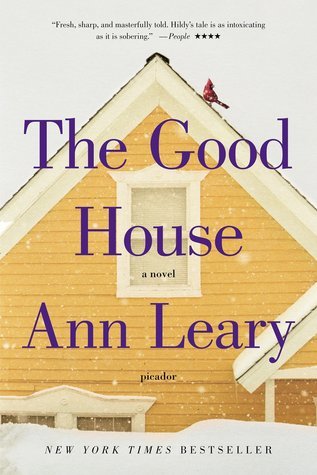
View On WordPress
0 notes
Photo

from the #precarity tales draft vault. a 2015 (ex) #adjunct #quitlit story: “nine years and counting” by professor never, an ex-academic alive in the real world (plus updated follow up below).
Next May, it will have been 10 years since I last stood in front of a room full of college students to share my thoughts about books. In July 2006, a few months after I taught my last class, I published a short piece about quitting academe in The Chronicle of Higher Education called Not Slinking Away. I saw the piece as the end of a memoir I was writing about my experience as an adjunct professor of English. I couldn’t yet see it was actually the beginning. Since then, I have made a version of that article into the Prologue of my book....That I might still be fiddling with an unpublished draft nine years later never occurred to me
....So what’s enough time? How does this story end? And why publish it now?
The blog, last updated November 2016 with an enigmatic post that seemed to have a ring of finality about it, could hold answers to the first two questions: ”just finish it already!” appeared September 2014, a page about the quitlit memoir -- with links to excerpts explains explains more, and then ”a writer” September 2016.
It turns out I went to graduate school to become a writer. It’s so obvious now.... I would try to work from home as a freelance writer/editor. I could do my creative projects on the side. I wrote about the culmination of this decision two years ago in the post: the perfect job: life after academe....Over the course of the years since, I’ve gradually replaced tutoring clients with writing/editing clients. It turned out I needed that Ph.D. after all (and the tutoring experience too). I write for organizations that produce scholarly information in special education and health. I couldn’t do the work without my experience as a scholar....All of that and I get paid well too.
It takes as long and as many steps as it takes. Why now? Because it “spoke” to me when I saw it in drafts, but perhaps even more because I am going through steps of my own. Not leaving academia: been there, done that. My own blogging and social media activity has been moving away from a formerly, near exclusive adjunct focus. I don’t want to stop blogging but need to find my own voice again.
7 notes
·
View notes
Text
https://thesobercurator.com/quitlit-jessica-simpson-reveals-for-the-first-time-her-inner-monologue-and-most-intimate-struggles-in-her-memoir-open-book/
0 notes
Text
Representation Matters
When did I know? Really, really early compared to the "discovery" or "a-ha" stories I've read so far, which often cite puberty. I guess it was just before puberty, though, because it was 5th grade and we had to get permission slips signed by our parents in order to participate in Sex Ed. I took the slip to my mom and said "This is not information I need, please tell the teacher to excuse me." And she did. From what I recall I was sent to the library to read on my own while everyone else had LESSONS that week. There was a lot of tittering and flushing amongst my classmates. I was just flat out not curious. For some reason, I did have to attend in 6th grade. Maybe it wasn't optional? All I remember is an overheard projector and tuning out.
In 6th grade there was also some anonymous questionnaire being passed around. A slam book, I think it was called? One of the questions asked who you had a crush on. I wrote in "Mickey Mouse" because I didn't have any crushes. They never found out who wrote that.
The second clear indicator happened on the first day of junior high. My best friend's other best friend, who I did not particularly like, was in the quad buzzing with excitement before our classes started. She grabbed my upper arms and said "There are SO MANY BOYS IN THIS SCHOOL, BREEANN. Go AFTER some of them!" And I stared at her, blankly. Go after them for what?
I did have my first crush in 7th grade, and my first celebrity crush was Jonathan Taylor Thomas. I also like looking at the faces of James Franco and Tom Hardy. I am not immune to aesthetics.
I had my first kiss at 17, preceded by the thought - which I also definitely said out loud, "Guess I have to start somewhere."
This was not dissimilar to the first time I tried to have sex, with my first serious boyfriend, at age 25.
Why am I bringing this up now? Well, I stopped drinking for the most part. Sober September, Sober October. I think I drank... maybe 5 or 6 days total since September 1st? I've been reading QuitLit. Letting go of what does not serve me. Mostly because the day after drinking I feel like my Wellbutrin doesn't work. I feel sleepy and weepy. I had two drinks at a Mom's Night Out get together last night and here I am, sobbing and typing today. Of course, that's not the whole of it.
No drinking has provided me with a startling clarity. A stronger sense of identity. And - although I actually wrote a LiveJournal entry about this SIXTEEN years ago - I can say, with confidence - I am asexual.
Heteroromatic asexual. I experience romantic, aesthetic and intellectual attraction. And I need to come out because I am so, so tired.

I remember having this conversation with some close friends all those years ago, and having to defend myself. "Don't knock it 'til you've tried it." Since then, I've had sex.I've always thought of it as a choice, though. An activity you choose to do, like yoga. Except I do yoga because I like how it makes me feel. I have sex to satisfy other people's needs. It has not, and has never been a biological or primal urge for me. I've had sex to say thank you and sex to add what felt like security to a monogamous relationship. I've had sex as a kindness, and sex because I like kissing and I like waking up next to someone I like or love - and that's what comes in the middle.
People will point to my antidepressants as the reason for my lack of sexual attraction - but all sex I had pre-antidepressants was painful, because I approached it as a cerebral choice, and did not consult my body on the matter. After anti-depressants, I could get my body to respond, to cooperate. And that is all I ever hope for. A lot of my willingness to have sex has been partnered with drinking. My harder drinking years directly correspond with my sexually active years. It not a matter of lowering inhibitions - it's that when I drink, I care less. I feel less. I remember less. In fact, drinking + Wellbutrin means my body often responds but my mind completely forgets. Brown outs. Black outs. Without drinking, I no longer have the luxury (?) of not feeling, of not remembering anymore.
I am married and in love. But I do not ever WANT to have sex. The idea never comes to me on its own. We have to change the language so I can stop lying to myself. Am I willing? When the conditions are right - absolutely, because I care deeply.
I used to write fiction. I stopped because I felt like my stories always fell short of that ultimate GET. I wrote about relationships, but they never had sex. Pop culture will tell you this story is incomplete.
In reading fiction lately I've been getting very angry. Actually even watching TV has been stoking this small fire inside of me. These scenes do not feel believable to me. They make me uncomfortable. And exhausted.
I also think this is why I've been quiet, and internally just kind of an asshole about birth control. It's NOT HARD to NOT have sex. Have I used birth control? Yes. (It made me crazy) Have I rallied for access to birth control? Not once. Just don't have sex or use a condom - it is very, very simple for me, someone who does not experience sexual attraction. I've had slip ups and had to take Plan B a few times. Every time I was drunk.
I've had some stone cold sober hookups, and by hookups I mean making out (no tongue, I'll gag) that were wonderful. I really like kissing. Spooning. But at a certain point in my adulthood - mostly my thirties, when I stopped waving my V-card in everyone's faces - sex became a given. A supposedly natural, good thing in all relationships. In most previous relationships, I stopped enjoying those other, non-sexual intimate acts because once you crossed that bridge, it seemed you could never go back. In my first two serious relationships, I developed physical ailments (eczema, hives) that created a REAL barrier to sexual activity.
It's happening again. Cold sores. My husband knows I find it almost impossible to have sex without kissing. Cold sores can last a week - or two. But I don't want OUT of this relationship. I love him, we have the cutest kid ever together. But the language, the perspective has to change for me to go on. I wrote this whole thing sobbing because I know there's the very real possibility that this is a deal breaker. It is for a lot of people. I get that.
Part of what makes THIS coming out so terrifying is I don't know anyone else who has done it. There's no celebrity role model. Most people will not even acknowledge that this orientation EXISTS. Why do it? Because maybe there is someone out there looking for it. Representation matters. Did I want to be the first person I know, of all my friends and family and friends of friends of friends? Absolutely not. But someone has to do it.
What do I want you to do with this information? Just acknowledge it. Maybe take the time to learn more about it. Open your mind a bit. Me, I want to not drink. I want to write fiction again. I want to work on my marriage in an authentic, not a performative way. I want to enjoy intimate acts without them automatically leading to sex. And I want to have sex to meet needs, without being expected to perform a certain way. I don't have any intrinsic sense of what to do, and I just really need to own up to that. I don't want to wait and see what ailments, what barriers my body will invent to create space for me. This is my truth. And I would like to live it.

Go ahead and go to Yasmin Benoit's TEDtalk
Here is sexual attraction labels explained using cereal
6 notes
·
View notes
Text
Single and Loving It? Wallada bt. al-Mustakfi, Lizzo, and the Breakup Blast
The first line of Lizzo’s chart-topping ode to making better choices, “Truth Hurts,” can be taken a few ways. “Why men great ‘til they gotta be great?” could relate to having the boldness to, as a subsequent line suggests, tell women the truth about their feelings in relationships rather than cowering behind text messages and vagaries. It could also mean that men are great until they get ideas of grandeur in their heads, and want to find grass they perceive to be greener. In either case, with this one line Lizzo puts all would-be lovers on blast for their fickle natures. By contrast, the artist presents herself as an assertive, emotionally in-touch, and self-assured catch, after all, as she says, “you coulda had a bad bitch.” In framing her iconic breakup song in this way, Lizzo follows a trend of styling a song about lost love as one of found singleness, which brings a woman freedom and confidence, rather than the wallowing and whiny, self-blaming breakup ballads of crooners past and present—think Beyoncé’s “Irreplaceable” vs. Beyoncé’s “Love Drought.” Instead of a breakup ballad, I prefer to call pieces like Lizzo’s a breakup blast—one last callout to call attention to the fine, fine woman that some idiot has given up. It’s an exuberant “fuck you” along the lines of elaborate job resignations or, if you’re a boring academic type who gets thrills from strongly worded letters, “quitlit.” And, as it turns out, this trend has a long history.
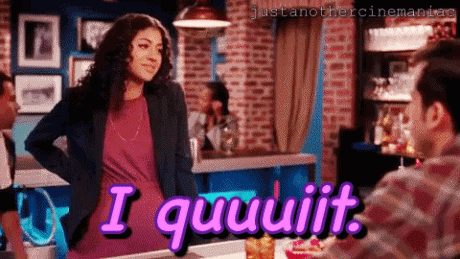
I’ve discussed women’s poetry in Classical Arabic on this blog before, and in particular, the fact that women in the pre- and early Islamic periods were often expected to compose only within certain, highly ritualized genres such as the rithā’, or mourning verse. Such poems have been looked at by scholars as instigating male action: women would mourn the fallen and call for vengeance against their killers, which men would then go exact. Even works not on this pattern, such as women’s war poetry, at times fall into this trope of the feminine voice as a catalyst for male movement, as with Hind bt. ‘Utbah’s famed poem about the women of the Ṭāriq tribe refusing their lovers’ embraces unless they succeed in battle—a sort of reverse-Lysistrata. Love poetry composed by women, meanwhile, is relatively sparse in the early Islamic period except in the most rarefied halls of high society, with courtesans composing amorous poems for their patrons that, once again, would have instigated male ardor and—ideally—lavish generosity. The call-and-response dynamic of women’s verse tailored to evoke men’s reactions is not merely an invention modern Orientalist or misogynist interpretations that want to view Arabic-speaking women of the past as submissive or impotent (though it surely has been abused to reach such conclusions). Rather, they are products of social hierarchies and modes of female exchange that flourished in order to navigate the power structures innate to their realities. Ritual mourning, pre-battle poetry exchanges, and mixed-gender courtly salons were all commonplace institutions with well-known rules, and as such they provided occasions for the relatively public communication of carefully constructed messages between differently gendered subjects.
A particularly exceptional figure to arise was Wallāda bt. al-Mustakfī, a Spanish Umayyad royal born at the end of the 10th/beginning of the 11th century. Not only did Wallāda compose poems about her lovers—and in particular her on-and-off-again flame, the famed poet Ibn Zaydūn—but she also often wrote not with the aim of impelling a male response but of preventing one. That’s right, Wallāda was a master of breakup verse, or, more appropriately, the breakup blast. Some of her most sparkling verses are, in effect, cease and desist orders issued to Ibn Zaydūn because he has slighted her in some way, or simply because she’s bored with him. It seems only fitting to pair Wallāda with Lizzo, not least because of the ongoing success both have enjoyed. In fact, much of what is commonly known about Wallāda is blown up to larger-than-life proportions—she has become a feminist figure of some renown, known as an irreverent Muslim Spanish princess who, according to some accounts, would walk around scantily clad before all the courtiers on a lark. However, it is essential to keep in mind that most of these impressions are derived from either her own poems or Ibn Zaydūn’s verses about her, which are often filtered through an amorous and emboldened male lens which may feature no small fraction of exaggerated boast or bathos, as when he exclaims “If my night grows long without you, how I’ll complain over having cut short a night with you!” Muslim biographers offer some facts about Wallāda in accounts of her life, but their reports are at times stitched together with connective tissue used to make her poetry fit a continuous narrative of her relationship with Ibn Zaydūn. In other words, there is a lot of room for imaginary thinking even in the medieval sources, to say nothing of modern feminist readings. So, to give Wallāda her proper due, let’s start with what we can know about her and her context before diving in to her works.
Wallāda bt. al-Mustakfī

^N.B. this is an Orientalist-as-shit painting by Frank Bernard Dicksee and we. have. no. clue. if our girl looked like this. But good Lord, those textiles! That freaking leopard skin in the background!
Before we proceed, it’s worth noting that one of the reasons that the annals of history have preserved so much of Wallāda was the remarkable fact of her elite social station: as a woman of noble birth, her words were inevitably valued as more precious, as well as refined and shaped by the education to which she had access. Often, collections of woman poets from the medieval period are peopled with a figure analogous to Wallāda in access to court culture, but far removed from her in degree of freedom, namely, the slave concubines of the upper-crust. These “singing slave girls,” or qiyān, occasionally attained great heights of renown for their witty repartee and their amorous effects on the people who owned them. Long before these women became courtesans, they were given training in arts and language. Kristina Richardson notes that qiyān were “typically purchased as children,” and the surest way to secure their position in the court was not through their literary practice, but rather through bearing children to their owners—their issue was born free, ensured that their mother would not be sold into another family, and guaranteed her eventual manumission once her owner expired. In his recent book, Slavery & Islam, Jonathan Brown uses the case of the caliphal consort ‘Arīb—poet, musician, and much lauded romantic interest of a variety of ‘Abbasid potentates—to illustrate that there were scenarios of elite slavery in the Islamic world that afforded one great visibility and admiration. Though Brown acknowledges that these women led “challenging lives,” he adds that the most successful among them were “protagonists in the epics spun around them,” and earned commemoration in the works of other elite, free male litterateurs.
All of this is argued by way of perturbing what Brown imagines his readers think of when they think of “slavery”—an unfree and permanent social underclass without freedom of movement or the forms of social and material access that these courtesans seem to have had in abundance—but it is worth noting that elite slave-concubinage is hardly an institution unique to Islamic societies. Moreover, it was hardly an enviable position in comparison to that of Wallāda, who was simultaneously plugged into courtly life and insulated from some of its most dangerous intrigues by dint of her position as a daughter of the caliph Muḥammad III. In other words, Wallāda was sitting pretty by comparison. Where court concubines were subordinated to both caliphs and their brides, Wallāda could enjoy the eventual prospect of wedding someone of her station, not being groomed as a proprietary mark of her lover’s prestige. Though marriage was often articulated as ownership in Islamic law (with a wife, like a slave, being milk al-yamīn), Wallāda’s poetry, in which she repeatedly brags of her free choice of suitor, shows that this dynamic was not absolute. In her writings on trysts with Ibn Zaydūn, it’s clear she does not feel she owes him anything--sex, children, emotional consistency...
Most importantly, Wallāda’s poetic utterances are enshrined not because she rose through the ranks and plotted carefully to bend the ears of those around her, but because she was already even from birth a prominent enough figure that her silver tongue was well-placed to be exercised and noticed. Unlike with ‘Arīb—who once fled an owner that she could not tolerate and, when about to be beaten for doing so, supposedly screamed “I am ‘Arib, and if I am owned, then he must sell me. If I am free, he shall have no way with me.”—when Wallāda laments that love is her enslaver, saying, “the nights march on without me seeing separation’s end/nor any emancipator from desire’s bondage,” she is speaking purely from metaphor. Moreover, when she rages against Ibn Zaydūn for havinga fling with one of Wallāda’s own maids—herself a slave woman ensconced in an elite household—she could still vaunt her class over her competitor by referring to the woman as her property (jāriyatī, “my servant”) and saying “You’ve left a fruiting branch in all its beauty/And inclined toward a barren branch,” with fruitfulness suggesting Wallāda’s wealth and breeding.

^For more on ‘Arīb, and for sheer delight, READ THIS. DO IT.
Even by the standards of her time, both literary and socio-cultural, Wallāda seems to have taken more liberties in her relationship with Ibn Zaydūn than was conventional: she names him openly in her poems, mocks his body, and airs his sexual proclivities. Wallāda was to be one of the last of her line to enjoy quite this degree of leniency and luxury, as the caliphate of the Spanish Umayyads was to end during her lifetime—when Wallāda was nearly 30 years old, civil war fractured al-Andalus into a series of ta’ifa states run by local nobilities, and Umayyad sovereignty came to an end.
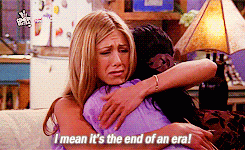
^Umayyad sovereignty be like...
Wallāda’s poetic works, while ostensibly controversial, are represented in the biography of her found in al-Suyūṭī’s work Nuzhat al-Julasā’ fī Ash’ār al-Nisā’ simply as striking; she is said to be, “unique to her age, known in her era, an embellishment to assemblies and a grace to conversations.” Despite her supposed love of risqué outfits, including one garment with which the text opens—a tunic embroidered with her lines (with some translator liberty), “I am well-suited to finer things, and as I walk I sway/ I offer my cheek to a lover, and kiss their cravings away!” –al-Suyūṭī is sure to quickly follow by telling us of her “solicitousness and integrity.” With this in mind, here are some of Wallāda’s choicer lines in which she’s breaking it off in her tempestuous fashion with Ibn Zaydūn:
Ibn Zaydūn has an anus that loves trouser staffs,
Were it to spy a penis in a palm tree,
It would become a bird [ṭayr abābīl] and flock to it!
And:
O, is there any way forward for us after this parting?
Lovers all around have long bewailed their fates.
Even in our winter visits,
I remained inflamed, standing over passion’s embers.
How, though I seemed to linger this way a while,
Did the moment I feared so quickly come to pass?
The nights march on without me seeing separation’s end,
Nor any emancipator from desire’s bondage.
God pours forth on the land you have departed
Endless torrents of rain, rushing and flowing.
And, on the pain of loving him:
Wait until the shadows conceal our visit,
For surely the night is good for secret trysts
From you, I’ve experienced [such torment],
If the sun felt this way,
It would not shine
The moon would not rise,
And the stars would not traverse the skies.
And just for fun, on a dude named al-Asbaḥī who she clearly didn’t like much:
O Asbaḥī, rejoice, for how many a luxury has God, enthroned, bestowed you?
From your own son’s asshole you’ve gotten that which
Cannot be acquired from the pussy of Būrān, al-Ḥasan’s daughter!
Between the first and second of these two short poems, we essentially see the two different sides of the breakup song dichotomy. In the second poem, we get the weepy (or, per Wallāda, torrential) emotional vulnerability of a woman writing her way through a breakup with a ballad—a studied melodrama featuring all the staples (“how did this happen?” “I kept loving you though you’d grown cold,” and “I still love you, ouch, it hurts”). In the first poem, we get a breakup blast—a heavy dose of mockery, a callout by name, and a heaping side-dish of “you’re not my type anyway,” colored deeply by the taboo of male bottoming. And, even when she’s in her more emotionally volatile state, Wallāda still plays the role of exhibitionist, repackaging what she herself acknowledges as the well-trod terrain of lovers’ complaints (fa-yashkū kull ṣabb bi-mā laqī), but imbuing it with her own style. In her poem about the pain of actually *being* in love, she stages her feelings on a cosmic plane.This poem was supposedly written, according to her biography, after she had been long rejecting Ibn Zaydūn’s visits and had decided to let him back into her bed. Even when Wallāda is in a relationship, it’s her emotions alone that reach beyond the stratosphere. If there’s way in which Wallāda and Lizzo are especially kindred, it’s this interest in the reversal and the subversion that can take a love song or a breakup ballad and place the woman at the center in intriguing ways, rather than focusing on her beloved.
Lizzo
Watch the video first, folks.
youtube
Before she got nominated for, like, 1 billion Grammys, Lizzo was Melissa Viviane Jefferson. Born in Detroit, MI, Lizzo grew up across a few different cities in the U.S. (Detroit, Huston, Minneapolis, and most recently, L.A.), and long knew she wanted a career in music. In college, she studied classical flute, and she often finds ways to incorporate that into her songs, live performances, and even into an iconic scene set in the backstage area of a strip club in the film “Hustlers.” Unlike Wallāda, who is an elite insider par excellence, Lizzo comes to the world of mainstream hip-hop from the outside: she’s not from money, she’s not from the industry, and her hobbies haven’t exactly been conventionally chic and on-trend, from her long commitment to marching band flute, anime, and writing fantasy stories, to her admission in her soulful EP track, “Coconut Oil,” “I remember back, back in school when I wasn’t cool/shit I still ain’t cool, but you better make some room for me.” Perhaps most prominently, she’s a plus-sized woman who loves to sing upbeat "bops” about loving yourself as you are. Lizzo has said before in interviews that she learned to love herself and her size a while back and that it wasn’t until body positivity went mainstream and the discourse caught up to her that her music really took off and started resonating with people. One New York Times article characterizes her music as “pure gospel,” and it does often feel like Lizzo is part preacher. She closed out her Tiny Desk Concert on NPR by saying, “I just want everyone to remember, if you can love me you can love yourself […] if you can love my big black ass at this tiny, tiny desk, you can love yourself. Can I get one more hallelujah?!” But where gospel tends to be characterized by reveling in certainty—in salvation, in God, in truth—there are many moments in her breakup songs where Lizzo revels in ambivalence and reversal.
Take her hit “Jerome,” which made waves with her performance at the AMA’s, the song is structured as a crooning ballad, the sort of melancholy, juicy sound you might associate with Whitney Houson’s “I Will Always Love You,” or, more recently, Adele’s “Someone Like You,” yet the refrain goes “Jerome, take your ass home/ and come back when you’re grown.” Despite appearances, it’s not a meandering ode to lost or unrequited love so much as a wakeup call about a man who isn’t complicated or emotionally torn or broken, just disappointing.
Another brilliant reversal comes in the music video for her most famous breakup blast, the chart-topping “Truth Hurts,” the first line of which (“I just took a DNA test, turns out, I’m 100% that bitch”) has resulted in some controversy over possible plagiarism, as well as an endless stream of cringe-worthy riffs, including Pete Buttigieg’s (please-clap-style) attempt at relatability here:
youtube
In the video (didn’t watch it yet? scroll up, come on now), Lizzo appears bedecked in a frilly wedding dress and flanked by bridesmaids clad in robin’s egg blue, a shirtless officiant in a bedazzled hat, a groom’s party, and—conspicuously—no groom. At the line “You tried to break my heart, well that breaks my heart, that you thought you ever had him but you ain’t from the start,” another woman in the assembled crowd stands up and begins voicing the words herself, as the verse’s tension builds (“hey I’m glad you’re back with your bitch, I mean who would wanna hide this…”) the camera moves between the two women—Lizzo and the guest—culminating with them both wagging their fingers at each other and saying the line “I will never ever ever ever ever be your side chick!” Where the term “side chick” seems to unambiguously label who is at the margins of a relationship, this clever camerawork shows that when two women are both being played in a relationship, each thinks of the other as the expendable, extraneous mistress.

This critique of the “side chick” concept and the intra-female competition it signifies it something Lizzo actively contests throughout the song by emphasizing bonds of female friendship instead; in the aftermath of her breakup, her friend takes her to the salon to wash the relationship away. After all, competition over a less-than-worthy guy not only draws fire away from failings of the man (who breaks up via text in the song for crying out loud!), but also, to quote Emily Gordon, often is simply a way for women to contend with the idea of their own selfhood by pitting ourselves against a “fun-house mirror that reflects an inaccurate version of who we are.” Wallāda is perhaps finding one such fun-house mirror in her servant with whom Ibn Zaydūn has a dalliance, as mentioned above. The full poem compares Wallāda as the brilliant, close-by full moon with the servant as remote, dim Jupiter even as it acknowledges the woman’s enchanting effect on her lover:
If you only shared the passion between us,
You wouldn’t have been charmed by my handmaid
You’ve left a fruiting branch in all its beauty
And inclined toward a barren branch
Surely you’ve come to know that I am the
Full-moon of the sky, but with Jupiter,
You’ve sparked distress in me.
Meanwhile, Lizzo shows that she already has enough self-assurance and awareness to realize that she’s “100% that bitch,” even when she’s “crying crazy” in a spell of heartache, and moreover that she would rather be the player than be played. References to other prospects are strewn throughout the song, from “something more exciting,” to a “new man on the Minnesota Vikings,” to other guys “in my DMs.” Lizzo indicates that these relationships are transient, though, with the line “I put the sing in single, ain’t worried ‘bout a ring on my finger,” showing us that the most important thing after a breakup is not learning how to forgive, to support other women and recognize their pain, or even to love again in the conventional, coupled-off sense. Rather, the greatest achievement is to learn how to love and have a sustaining relationship with yourself.
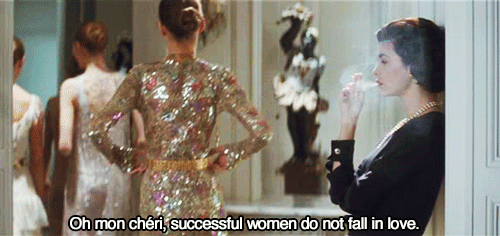
With Wallāda, self-love trickles in here and there throughout her oeuvre, but it is often articulated as a function of her status (she is high-born, beautiful, etc.) and the power and allure this enables her to exert over men. Though the breakup blast may traverse times and regions, its open celebration of single womanhood—and especially single womanhood that isn’t depicted as something fleeting, an in-betweenness rather than an identity—is far less universal and historically commonplace. Indeed, it’s still something many are uncomfortable with today, though we may be on the precipice of a change in the United States. As Rebecca Traister writes in her book All the Single Ladies: Unmarried Women and the Rise of an Independent Nation, “Many women, unmarried into their thirties, living in geographic, religious, and socio-economic corners of the country where early marriage remains a norm, as well as many women who remain single less by choice than by circumstance, into their forties, fifties, and sixties, do not feel as though they are living in a new, singles-dominated world. They feel ostracized, pressured: they are challenged by family and peers. However, statistically, across the country, these women are not alone. Their numbers are growing by the year.” Lizzo, at 31, continues to live her self-loving, single truth (and has explained that she doesn’t seek relationships out of need, but rather out of want, because she’s still at base a “single-minded” individual)—a truth that is increasingly applicable for many of her listeners. Wallāda, who never wed, would perhaps find this a welcome shift.
2 notes
·
View notes
Photo

Behaviour ‘Behaviour – ever done something drunk that you wouldn’tdream of doing sober? Freud was a neurologist in the 19th and 20th centuries who created the theory of the Id – the little part of our brain that wants it NOW and the only part of our personality that he says is there from birth. It’s how babies make their needs known and met. Fortunately, we develop what he called the Ego and Superego which keep the id in check and our behaviours more socially acceptable. They are the middle men between our id and the world, and make us show up as sensible human beings. Guess what happens to egos when we anaesthetise them? How I love waking up now and remembering everything I did the night before. Not frantically checking my phone and Facebook to see what I’ve said, who I’ve called and what I’ve texted. When we drink, we tend to tell others what we think and blame them for all of our woes. But no-one else can make us feel or behave in a certain way. NO-ONE- only we have the control over how we respond.’ The A - Z of Alcohol and Sobriety: Everything you need to know by Corinna Alderton. For more excerpts check out my posts with pictures of my book/book pages, download a free sample from Amazon and/or buy it worldwide for less than a bottle of booze! I also talk about many of the 400 plus headings in Positive Recovery with Corinna on YouTube and at www.Sobertownpodcast.com where you will find many great podcasts with people from this community and much much more. Read, listen, write and connect. Work, work, work your recovery 💃💥🎉 🍵🫖☕️💦 Chin Chin 💖 #alcohol #recovery #sober #alcoholfree #quitlit #podcast #soberpodcast #sobriety #sobrietybooks #recoverybook #mentalhealth #Healthandwellness #alcoholrecoverybooks #booksonaddictionandrecovery #selfhelp #books https://www.instagram.com/p/Cphijtfs_UJ/?igshid=NGJjMDIxMWI=
#alcohol#recovery#sober#alcoholfree#quitlit#podcast#soberpodcast#sobriety#sobrietybooks#recoverybook#mentalhealth#healthandwellness#alcoholrecoverybooks#booksonaddictionandrecovery#selfhelp#books
2 notes
·
View notes
Video
내말이! 그러니까 어서 일하고 돈을 벌자
2/21 (M)
KGU-교재 픽업 (40/26명?)
시계/토너 주문
학위기 수령 (인천집에 두기)
2/22 (T)
992 Raffle
SJ 글 읽고 피드백 -> B퇴근후에 web문서 새로 저장 시도할것
몰테일 - 물품 배송 - 확인/ 교재 살 수 있는지 [질문-답변 기다릴 것]
Levy chapter 읽고 쓸 수 있는 내용 빨리 골라낼 것
Check L’s letters again
2/23 (W)
Writing
2/24 (T)
국문초록 번역 수정
강의계획서 - 목요일 버전 시작
Intro 막 단락 만들어내기
1st chapter까지
- Academy / response - clarify 이게 먼저 나와야하나?
1. Suffering student (X-machine) / 2. aspiration out of university (two men) / 3. new recognition (Reuben’s heroism and different knowledge / hybrid)
첫주 Teaching 계획서 / PPT
TB paper - review
리서치 - quitlit/age
2/25 (F)
CTU - 글로벌 영역 회의 / 10시
CTU- CTL 자료 문의
2/26 (S)
Women Higher Edu check - two more
Jaju shopping
Newman - one / Lit
Ideal of womanhood - check
check Beckman again - a book about it
2/27 (S)
2/27 (S)
metamorphosis -
Read - M’s commented document
가톨릭대학교 주차증 끊는 것 서류
Clough 준비 빨리//Tennyson 준비
a/the 한 챕터만
Zoom videos - drive
Shipping
시계 / 토너 / Malltail; books
Shopping
교재 빨리 사야 (한권 더 사?.....)
웰라쥬 재구매
alcohol swabs
sun screen -
Goals
1. L - Draft - Editing
2. 번역
3. Tennyson -
4. 수업계획서 -1. 1주 / 2주
2. 1주 / 2주
3. 1주 / 2주
5. abstract - March 1st? (Age studies)
Cath-주차권 2.21일 - 3.10일까지
완화된 상대평가 II. - 계획서에 제시
KGU-교번 2.28일 이후에
사무실 4강의동 4102B호
목: 4401호 (4강의동 4층 1호입니다.)// 금: 2309호 (2강의동 3층 9호입니다.)
0 notes
Photo

📣 I want to say a huge thank you to everyone who has supported the Sober is Dope book by me, @popbuchanan! We have sold over 500 copies in just 30 days and I am thrilled to see the impact this book is having. Sober is Dope is not your average quitlit book. It combines healing prayers, affirmations, personal testimony, and scientific insights to help spread the message of sobriety, healing, and transformation. It has been an honor to share this book with those who can benefit. I am grateful for everyone who has supported me by purchasing a copy for themselves or their loved ones. Your support means everything to me and I am humbled to be a part of your journey towards healing and wellness. If you haven't already, I encourage you to pick up a copy of Sober is Dope and start your journey towards a brighter tomorrow. Whether you're dealing with sobriety, sober curious, or just looking for a new approach to life, this book is a must-have for anyone seeking peace, purpose, and transformation. Thank you again for your support, and let's continue to spread the message of hope, healing, and transformation. 💪🙏📖 #SoberIsDope #QuitLit #SobrietyBook #Healing #Transformation #Recovery #Addiction #MentalHealth #Wellness #Support #Gratitude #Spirituality #ChristianPrayers #Affirmations #PeaceOfMind #BrighterTomorrow #SpreadTheWord #ThankYou #SoberLife #SoberMotivation #HipSobriety #SoberWoman #SoberMom #BookQuotes #soberbooks #soberbook #sobrietybooks #soberlife #soberquotes (at Brooklyn, New York) https://www.instagram.com/p/CpeSuTQMyek/?igshid=NGJjMDIxMWI=
#soberisdope#quitlit#sobrietybook#healing#transformation#recovery#addiction#mentalhealth#wellness#support#gratitude#spirituality#christianprayers#affirmations#peaceofmind#brightertomorrow#spreadtheword#thankyou#soberlife#sobermotivation#hipsobriety#soberwoman#sobermom#bookquotes#soberbooks#soberbook#sobrietybooks#soberquotes
1 note
·
View note
Text
Grad school’s not “right for me”
Implying that my reasons for forsaking academia are merely personal and don’t make a claim on everyone? How about instead, we say “grad school’s NOT RIGHT!”
28 notes
·
View notes
Text
Book Review: Ceremony by Leslie Marmon Silko
Book Review: Ceremony by Leslie Marmon Silko #indigenouslit
Summary:Tayo, an Indigenous Laguna man, returns from being a prisoner of war of the Japanese in WWII without his cousin. Cousin is the technically accurate word, but since Tayo grew up in his cousin’s household after his mother left him there brother felt more accurate. Tayo is half-white and has always felt estranged, but this feeling is only heightened after the war. He is suffering from…
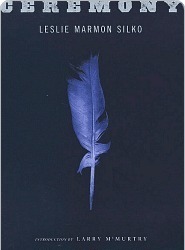
View On WordPress
#alcoholism#Book#book review#ceremony#historic#historic fiction#indigenous#laguna#leslie marmon silko#native literature challenge 2021#ptsd#quitlit#Review#shell-shock#southwest#wwii
0 notes
Text
Reflections on #AdjunctStories, the genre
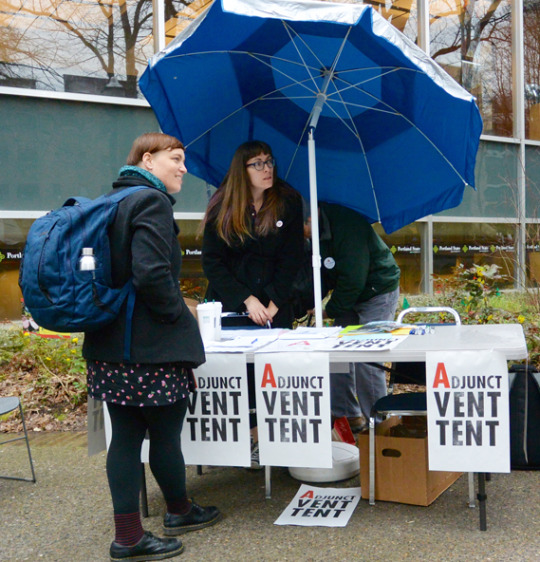
First came the academic novel, not exclusively or even mostly about guest workers in the Groves of Academe. Actually, Latin carmina burana and Chaucer's Clerke preceded them -- unless you want to go all the way back to the story of Akademus and how he got his Grove on.
Then came the adjunct story -- narratives burgeoned into documentary films, novels, plays. Leaving Academia narratives have emerged as a subgenre of the subgenre.
Syndi Dunn's December 2013 Why So Many Academics Quit and Tell seems to have introduced the #quitlit tag as well as a spreadsheet collecting stories. Referring to Matt Welsh's 2010, Why I'm leaving Harvard, Dunn comments,
When Welsh took to the Web to make his announcement, he was ahead of the curve. But he’s now in good company: Recently, there’s been a surge of cathartic columns in which scholars—with tenure and without—explain why they’re leaving academia. (We've listed the essays we've read here in a Google Doc; take a look and add pieces we've missed.)
There’s nothing new, of course, about academics leaving the ivory tower. But the exploding genre of “Quit Lit” demonstrates that saying goodbye is becoming an increasingly public act.
A recent entry by a PhD student, obviously not yet quit but apparently thinking about it -- perhaps the birth of new genre: pre-emptive quitting
How #QuitLit Became a Genre in These 9 Headlines, Amy Leggette, March 25, 2014, digi-flânerie
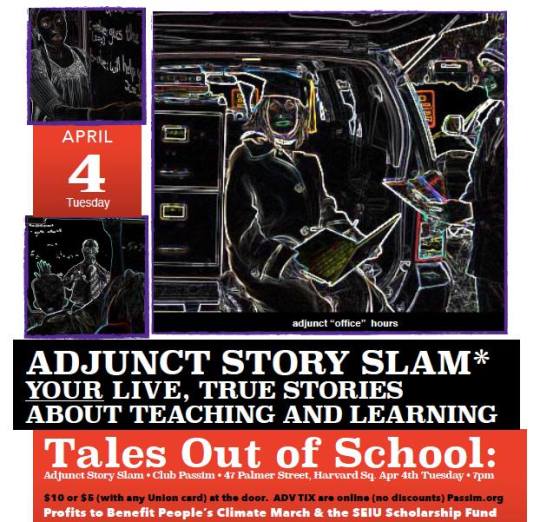
Some adjunct stories repositories:
The Adjunct Blog | Adjunct Project
Tell Your Story | Adjunct Action, a Project of SEIU
On Daily Kos, 2009, Professor Smartass asks What's it like to be higher ed adjunct faculty? Tell your story
The Invisible Adjunct, possibly the one who started it all, is gone -- even the from The Wayback Machine -- but her memory lingers on
PS the “vent tent” is from #NAWD in San Diego, 2015, and Adjunct Stories Slam is for a Faculty Forward event 4/4/2017
#adjunct-stories#personal narrative#confessional#bearing-witness#genres#faculty-novel#adjunct-novel#subgenres#quilit
1 note
·
View note